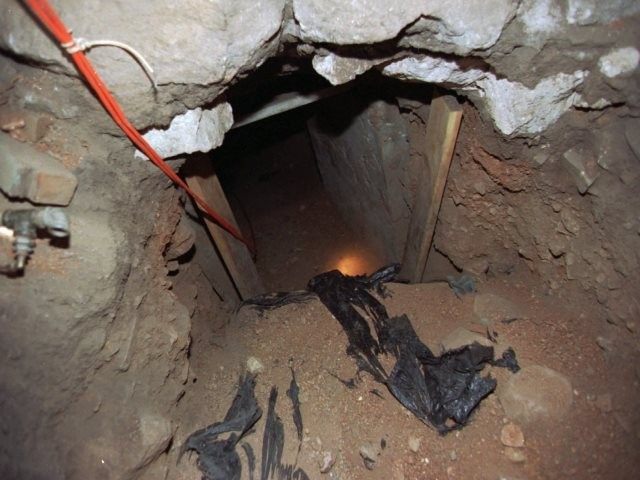The vice president of the Association of Engineers in Mexico disputed a claim made by the Mexican Attorney General that there were 30 narco-tunnels found along the U.S.—Mexico Border between January 2010 to June 2017.
Roberto Mendez Meza said that it is likely that there were 80 tunnels discovered during that time, contradicting the official number given by the Federal Attorney General’s Office (PGR), according to Reforma News Agency.
During President Donald Trump’s California visit and border wall prototype inspection, the PGR reported the number of tunnels discovered to Reforma, which was disputed by the engineering group. The area for the proposed southern border wall is known for sophisticated tunnels built by drug cartels to avoid detection by the U.S. Border Patrol.
The U.S. Bureau of Customs and Border Protection (CBP) warns that underground crossings are not only used for drug trafficking, but also for the smuggling of illegal immigrants into the United States. Breitbart Texas previously reported about human smuggling activities related to narco-tunnels that were discovered along the California-Mexico Border. In one such instance, 23 illegal immigrants from China and seven from Mexico used a tunnel to sneak into California. This passage was discovered in the surrounding area near the Otay Mesa international port of entry where agents uncovered a crude opening in the ground with a ladder inside.
In another investigation by federal agents, a massive tunnel spanned the length of eight football fields from a warehouse in Tijuana to an industrial park in San Diego’s Otay Mesa area. The design featured a railcar system, lighting, and ventilation equipment to make it easier for Mexican narcos to move large quantities of drugs, as reported by Breitbart Texas.
Mendez Meza said he doubts a border wall would stop the crossing of people and drugs. Even if a superstructure was built, he believes the criminals would continue to develop tunnels.
According to the PGR, 30 tunnels were found in Tijuana, Mexicali, and Tecate. Sixty-six percent were closed down though the remainders maintain unclear usage statuses.
Robert Arce is a retired Phoenix Police detective with extensive experience working Mexican organized crime and street gangs. Arce has worked in the Balkans, Iraq, Haiti, and recently completed a three-year assignment in Monterrey, Mexico, working out of the Consulate for the United States Department of State, International Narcotics and Law Enforcement Program, where he was the Regional Program Manager for Northeast Mexico (Coahuila, Tamaulipas, Nuevo Leon, Durango, San Luis Potosi, Zacatecas.)

COMMENTS
Please let us know if you're having issues with commenting.